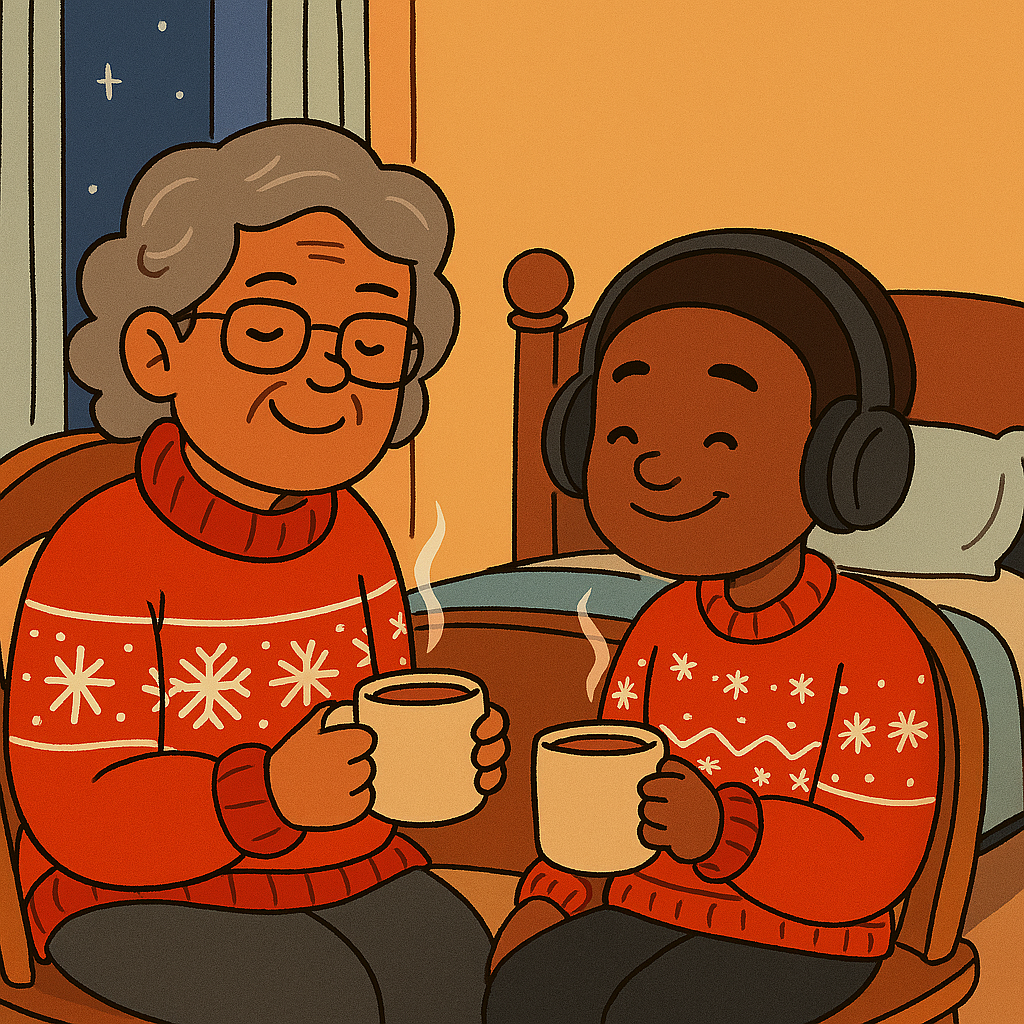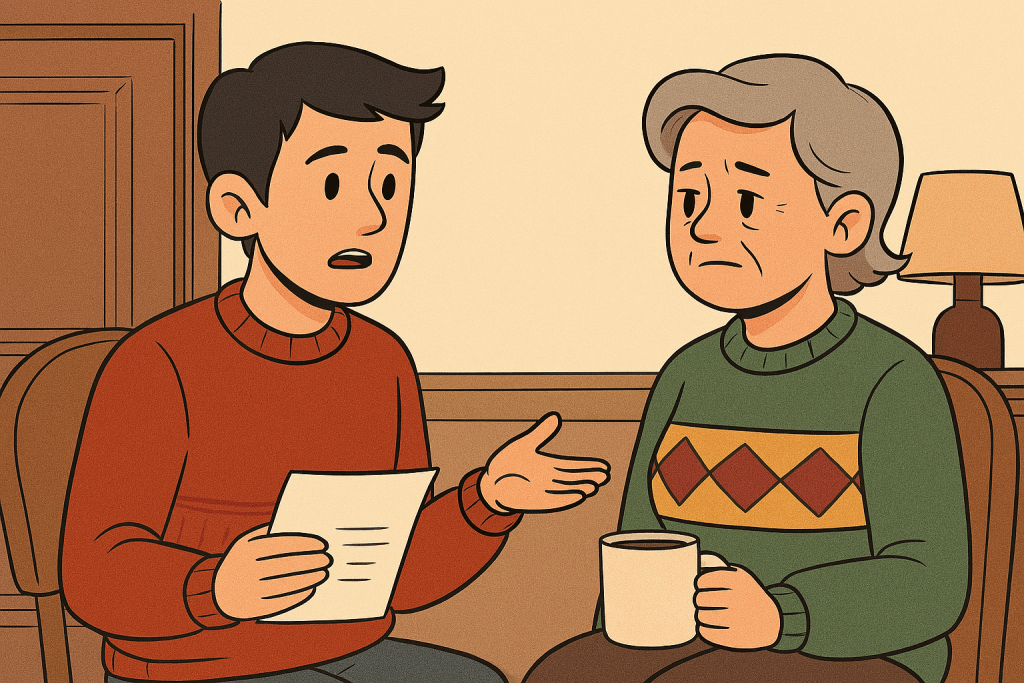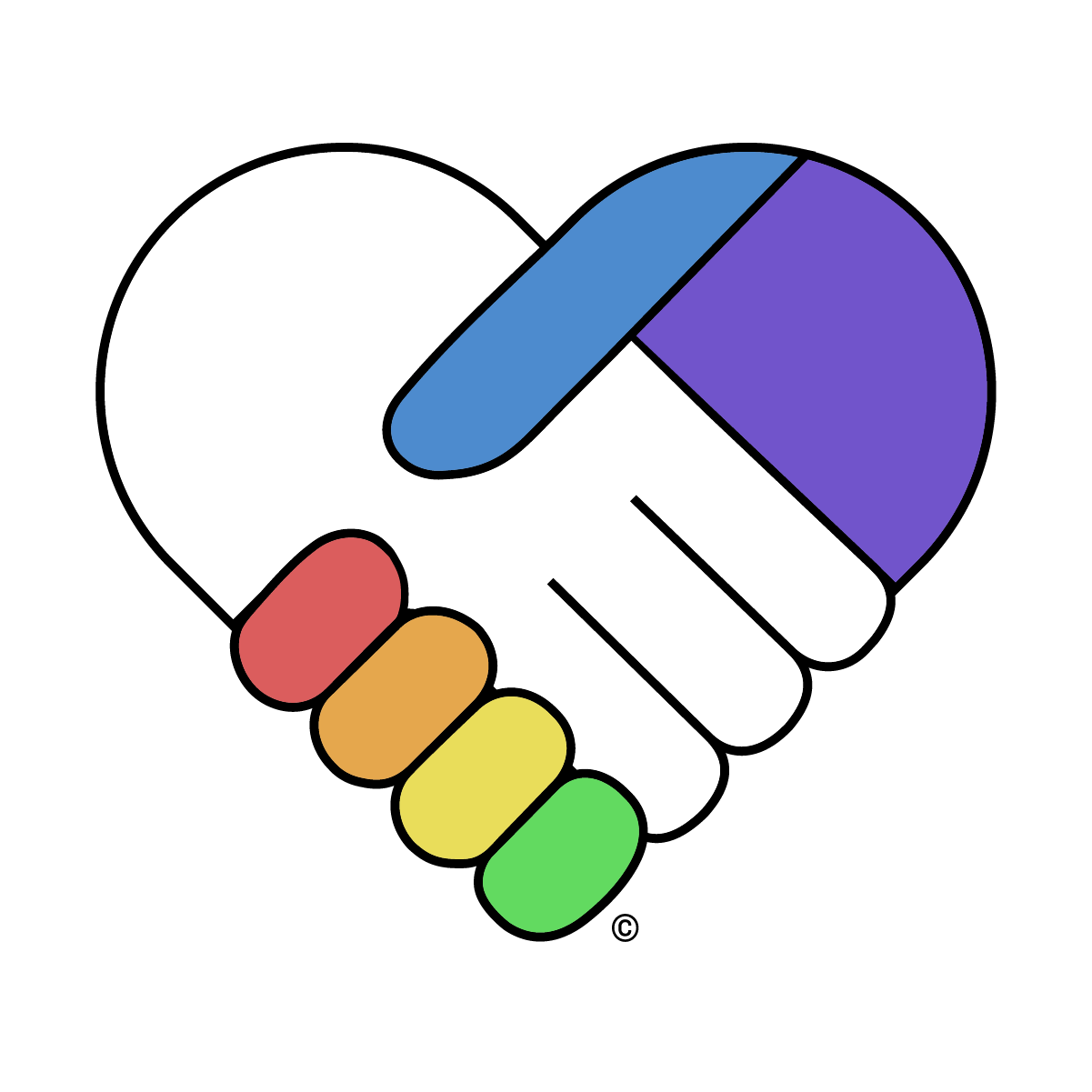By a former special education teacher, AuDHD adult, and parent to neurodivergent kids.
Neurodivergent-Friendly Guide for the Holidays
The holidays can be joyful—but for many autistic or ADHD individuals, they also bring a surge of stress. From sensory overload to shifting routines, this season can feel more like survival than celebration.
Let’s discover how to prepare, advocate, and recover with compassion and build a holiday that suits you and your family’s needs.
Related link: Meltdown Planning PDF and youtube video
Preparing for the Holidays with Intention
Before the season ramps up, take time to:
• Analyze your or your family’s sensory, dietary, health, and emotional needs
• Reflect on past events—what worked, what didn’t
• Identify known triggers and gather your coping tools
You can’t predict other people or unexpected events, but you can prepare by studying your history and honoring your needs. Autistic and ADHD bodies are vulnerable to receiving an overflow of sensory information during the holidays, and by intentional planning ahead? You can begin to create a holiday that truly fits you and your family.
Here are some examples:
- “My son tried climbing the Christmas tree, so we had to take it down.”
→ “This year, I’m making a picture of a tree on the wall and decorating it with art throughout December.” - “I had a meltdown grocery shopping—Christmas music and strong smells were too much.”
→ “This year, I’m ordering groceries online and doing curbside pickup.”
Different doesn’t mean lesser. Meeting your family’s needs and creating a joyful holiday (no matter how it looks) is a victory.
Don’t let fear of straying from the norm trap you in situations that will hurt you or your loved ones.
I want to share a short story before moving on.
I once read of a family with a high support needs autistic son. He could not be in the living room with the rest of his family because it was too overwhelming.
Every single adult at that party took turn sitting with him in a bedroom. Chatting with him. Eating. Playing games.
To me, that was a beautiful holiday to read about.

Communicate Needs Before Events
One of the hardest parts of being neurodivergent is remembering that others may not understand what you’re going through.
I know from personal experience that many sensory sensitivities can be caused by autism and ADHD. The Christmas lights, itchy sweaters, and sea of unfamiliar faces can feel overwhelming—even if the event is full of love.
You can enjoy being around your family and still feel overstimulated. Both can be true.
But for someone without these challenges, your discomfort might seem sudden, confusing, or even rude. It’s not their fault—they’re being handed a problem without a plan.
That’s why communicating ahead of time matters. It lowers their anxiety, too.
Boundaries are healthy. Even if it feels intimidating to speak up, setting clear limits protects both you and the people around you.
Here are some gentle ways to plan ahead:
- Set boundaries around arrival, departure, and participation
- “I’ll need to leave early. Are there any moments you’d like me to be part of? I’ll do my best to stay through those.”
- Share your needs with hosts
- “My son is sensitive to bright lights and loud sounds. If there’s a quieter space available, we’d really appreciate it.”
- Use “I statements” to self-advocate
- “I get overwhelmed easily. I’ll pace myself and let you know if I need to step out.”
Healthy communication helps avoid surprises—and most hosts will appreciate the clear communication.

Related Link: Setting Boundaries as an Autistic Adult
Compromise with Care
Holidays aren’t just about your household’s joy—they’re about everyone’s. And when many needs and expectations come together, not everyone will leave completely satisfied.
Those of us on the ADHD or autism spectrums especially have unique needs, they can even clash against one another! This is bound to happen in families where being neurodivergent runs in the family.
Not every plan will be perfect—and that’s okay.
Facing conflict or bumps doesn’t mean you failed. It’s simply part of being human. When different people with different needs gather, compromise is inevitable.
That’s why it’s important to know what’s in your control—and what isn’t.
When you recognize what’s outside your control, you can forgive yourself.
And when something is in your control, you can learn from it and make adjustments for next time.
Here’s a gentle reminder:
Your Circle of Control:
• Your boundaries, energy, and self-talk
• How you handle challenges
• What goals you set
Not in Your Circle of Control:
• Others’ reactions, opinions, or choices
• The outcome of your efforts
• Unexpected events
Acknowledging that all holidays are a dance of compromises is the first step toward grace.
People age. Plans change. Illness happens.
Meeting the needs of others is compassion—and you and your family deserve that same compassion, from others and from yourselves.
Related link: Create a Personalized Support Folder for Your Autistic or ADHD Child
5 Ways to Support Neurodiverse Individuals
While the following tips may not always be possible, when they are, they can make holiday life much easier for autistic and ADHD people and their families:
- Meet in small groups
Plan smaller gatherings, or find a small group within a larger event to spend time with. Intimacy often feels safer than crowds. - Take breaks or leave without explanation
Many of us can sense when we’re overwhelmed but feel guilty about leaving. In reality, most people would rather you step away than stay and risk a meltdown.
As an autistic person, I know I tend to over-explain. But when you need to leave, it’s safer not to give details. “I had a lovely time, but I have to go.” That’s enough. Don’t give anyone the chance to talk you out of what’s best for you. - Let trusted people help you exit
“Oh, is it time for you to go? It was lovely having you! Let me walk you to your car.” Most hosts would rather support your exit than risk a meltdown or family tension. - Plan recovery time after events
Acknowledge that events are hard. Pre-plan your evening so you know how you’ll decompress once you’re home. - Use low-contact ways to show love
Sometimes, parties are just too much. That’s okay. There are other ways to show love—videos, handmade gifts, one-on-one meals.
If someone feels hurt that you or your family didn’t attend, take steps to show you care in a way that works for you.

Related Link: Article Giving 7 Great Ideas for Long Distance Holiday Hangout Ideas
Aftermath and Aftercare
The aftermath and aftercare are just as important as the event itself. Maybe things didn’t go as expected, or maybe it was the smoothest holiday you’ve ever had. Either way—this stage is for you.
Take time to reflect:
- What worked?
- What didn’t?
- What will we carry to next year or try different?
But most of all, give yourself space to decompress and offer yourself the kind of care that helps you truly reset. You can’t reflect on what happened before you are back to 100%, so please allow yourself grace.
It’s the hope for tomorrow that gives us the strength to reflect without shame—and the power to make gentle, meaningful changes for tomorrow.

Related Link: Autism and ADHD burnout and recovery article
Conclusion
I hope this article offers some guidance through the holidays. The holidays can indeed be stressful, but through planning, support, and grace; you can build the type of celebration that best supports you and your family in the ways that you need.

